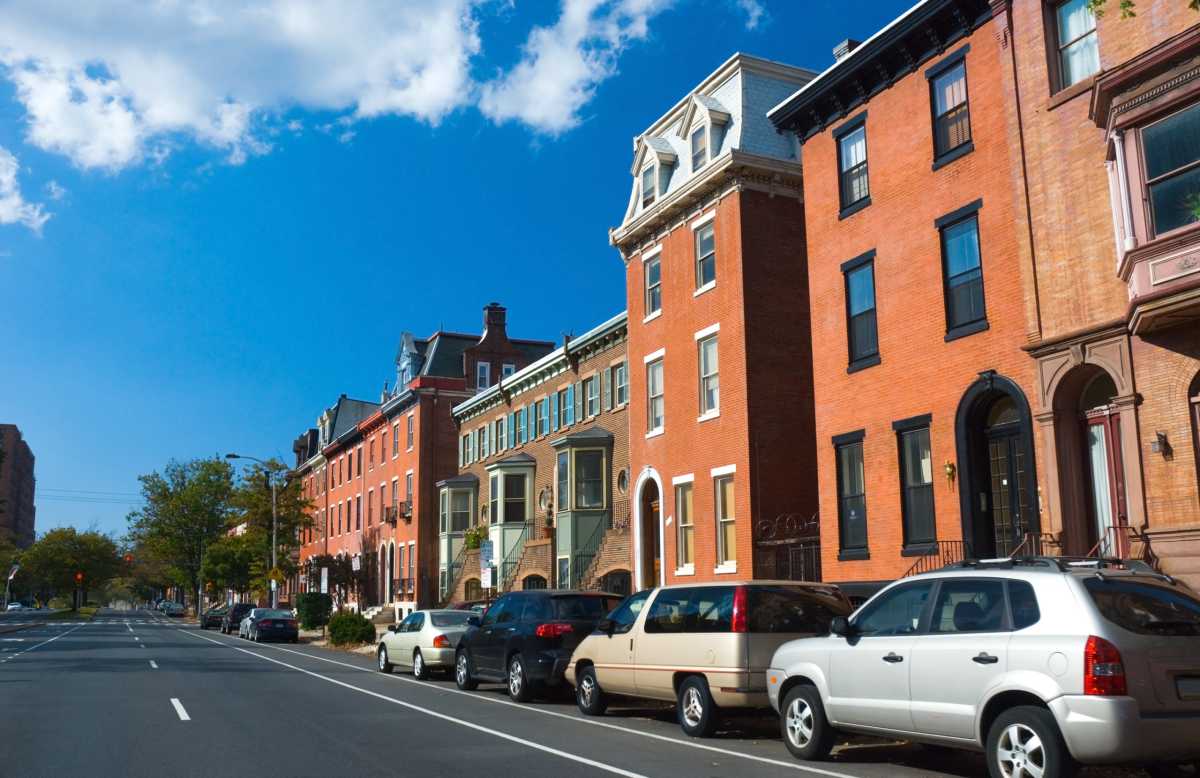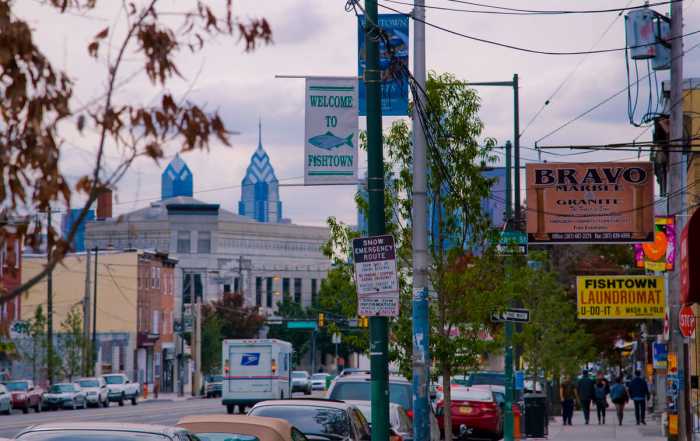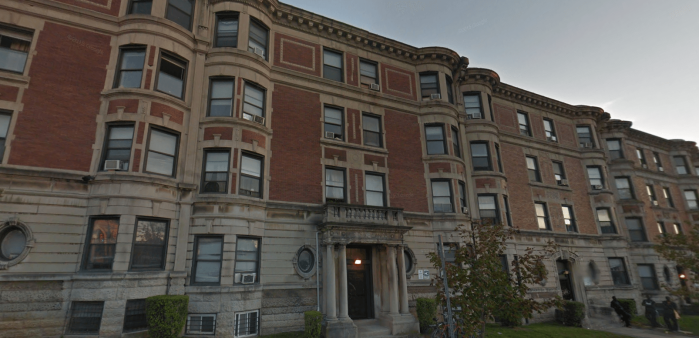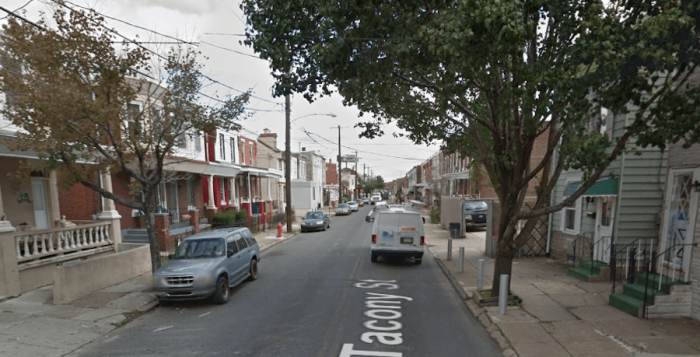Some of the men staying at Bethesda Project’s homeless shelter, just north of Center City, go to work everyday.
Kharisma Goldston, the nonprofit’s shelter director, said several hold multiple jobs, and not just under-the-table gigs. The same is true at the 150-bed all-male emergency housing facility run by the Sunday Breakfast Rescue Mission (SBRM).
“Many of the men that we serve have incomes,” SBRM’s CEO Jeremy Montgomery explained. “Big stereotype or assumption is that they are unemployed, even uneducated, or doing nothing. Most are hard working, certainly not lazy.”
Philadelphia’s housing crunch — which has spurred rising costs and competitiveness — has had a profound impact on people at the lowest levels of the income bracket, including those without shelter and residents at risk of homelessness.
“We definitely have had more people that this will be their first time experiencing homelessness,” Goldston said.
There’s a variety of reasons and circumstances. Seniors or people on permanent disability who don’t have enough from their fixed income to pay rent; workers who have recently been laid off from a specialized job; those returning after serving time in prison.
More than one person has come to Bethesda Project because a family member died of COVID-19 and they could no longer afford housing, Goldston said.
Kelvin Jeremiah, the president and CEO of the Philadelphia Housing Authority, acknowledges that there is an “affordable housing crisis.”
PHA distributes vouchers to residents struggling to afford housing costs, as well as those recently homeless, that allows them to rent a unit and pay a percentage of their income, usually around 30%.
However, about 60% of voucher holders in the city have recently been unable to find a place to live within four months, when the paperwork expires, Jeremiah said, adding that PHA usually grants extensions.
Between 700 and 1,100 people with PHA-issued vouchers are actively searching for apartments during an average week, officials said.
“There are men sitting in our shelter today, right now, that have been matched for the placement of permanent housing,” Montgomery said. “But there’s no housing units available for them to go to.”
PHA has, for the first time in its history, been offering incentives for landlords to participate in the Housing Choice Voucher Program, also known as Section 8.
Signing bonuses of $300 are being offered, and landlords in an “opportunity area,” higher-income neighborhoods with more amenities, can get a $1,000 payment.
For emergency housing vouchers, which are distributed by the city exclusively to people without shelter or at risk of homelessness, landlords can get a $500 one-time bonus.
Through President Joe Biden’s American Rescue Plan, Philadelphia received 863 emergency vouchers, though under 200 have been issued and only 19 leases have been signed, according to data on the city’s Office of Homeless Services website.
Eight thousand people are on PHA’s housing voucher waitlist, and Jeremiah told Metro that the authority plans to open up the Section 8 application process sometime in 2022, for the first time in more than a decade.
“At some point, and I can’t tell you when, but at some point this year, we fully expect to reopen the waiting list for new applicants,” he said.
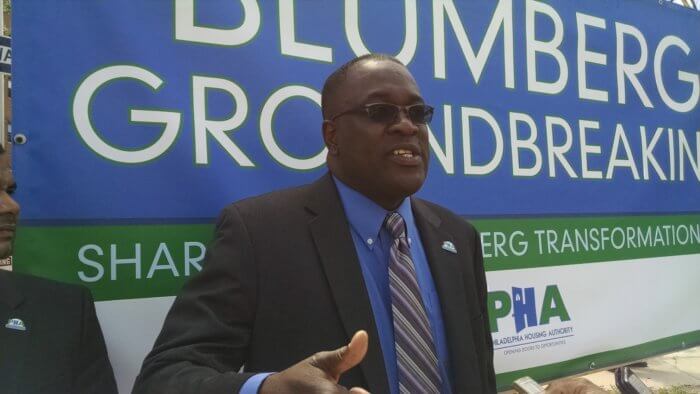
Jeremiah said the incentives, which are being offered through April 30, were developed following conversations with landlords to gauge their concerns.
PHA took steps to streamline the leasing process, and the housing authority has also started an insurance program, which pays landlords up to $2,500 above the security deposit to repair damages to the unit after a tenant moves out.
Since late last year, when the landlord benefits began, an additional 400 to 500 property owners have signed up, bringing the total number to around 5,500.
“It’s challenging, given the huge demand that far outpaces the limited supply that exists,” Jeremiah said.
For those coming out of the shelter system, there can be extra obstacles.
“I think some of it is an old stigma associated with people who are experiencing homelessness,” Goldston said. “I’ve had clients say, ‘I don’t necessarily want people to know I’m in a shelter because I get treated a little differently.’”
In addition, people with an eviction on their record can have trouble finding a unit, even if they withheld rent due to maintenance issues that were not being fixed or were victims of domestic violence, she added.
Montgomery said registered sex offenders have a particularly difficult time and may find a job before they secure affordable housing.
A survey conducted last month by Wilmington-based WSFS bank found that just under 80% of renters in the region said they were struggling to save enough money to afford a new apartment and about 70% said their existing housing situation was unaffordable.
Meanwhile, consumer prices for everyday items have jumped 7.3% in the Philadelphia area over the last year, according to the U.S. Bureau for Labor Statistics.
“It’s creating a little bit of a tighter market for our population, who already have some other barriers preventing them from securing that stable housing,” Goldston said.
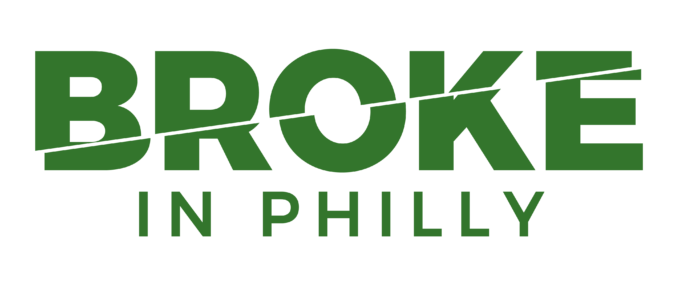
Metro is one of more than 20 news organizations producing Broke in Philly, a collaborative reporting project on economic mobility. Read more at brokeinphilly.org or follow on Twitter at @BrokeInPhilly.



